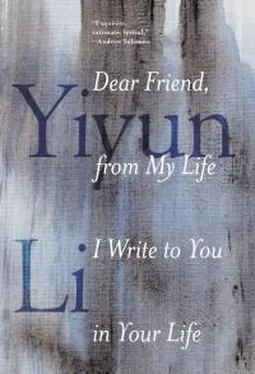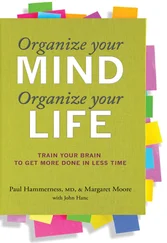The girls who slept during the daytime were your allies. After lights-out and before reveille they occupied storage rooms and toilet stalls and memorized English vocabulary. There were other night wanderers, too. Once a girl was found weeping in the darkness; she was later sent home. Once my bunkmate, reputed to be one of the top young mathematicians in China, was stopped by a girl when she went to use the bathroom. The girl had spent hours after lights-out trying to solve a well-known mathematical problem and asked for her help. Crazy, someone commented, but obsessions demanded respect, too. A petite girl in my squad regaled us with stories from her village, where women took their own lives with weed killer and pesticides as readily as—in her exact words—apples dropped from apple trees. The same girl read and marked a few notices in a magazine where young women advertised their wishes to seek soul mates in the army. Lecherous, she called the women; all they want is to marry a solider for practical gain. I was doubtful but persuaded—don’t question me, she said; these are people I’ve grown to know—to draft replies. I made up male names and ranks and combined them with solid knowledge about military life, and mailed the letters in army-issued envelopes to ensure that a reply would come to our fictional selves. For days and weeks we waited. No love letter ever found its way into our hands.
—
ON THE PHONE, reporting my uncle’s death, my mother informed me that toward the end of his life he had become violent, beating his children and grandchildren. Your cousins said it was dementia, she said; but do you think what he really had were mental problems?
My mother has a way of talking about mental illness and suicide that makes me uneasy. The day I arrived in Beijing she reported that the father of an elementary-school classmate had died. When his wife was out grocery shopping, he made a detailed list of bank accounts and passwords, bills to be paid and already taken care of, and then hanged himself. Do you remember him? my mother asked. Yes, I said. He was active in the retirees’ choir, my mother said; a good tenor. He looked happy, she said; why would he do it? I had no answer, so my mother asked me if she had told me about the death of our former neighbor Mrs. Xiao. Yes, I said, but that did not stop her from telling it again: the woman had jumped from her eighth-floor apartment the year before. Courteous, aloof, elegantly dressed at a time when most women wore gray and blue Mao jackets, she was one of the most graceful people I had known as a child. She had refused to join the neighborhood gossip (and so became a subject); she had never meddled with my or any child’s business.
When I was growing up, my family never once traveled together. The summer I was seven, my uncle, who lived four hours by train from Beijing, brought my sister and me to his home, the first time I had been on a train or set foot in another city. Perhaps it is his death that makes me modify the memory, but it seems those two weeks at my uncle’s belonged to the happiest time of my childhood. Though I know, in retrospect, that the summer must have been difficult for his family. Our eldest cousin had taken the college entrance exam and scored third in his province, but he had a noticeable limp from polio, so no college would admit him. He was quiet. Still, he showed us around town like a dutiful host, carrying four children on a bike with twenty-eight-inch wheels and reinforced for agricultural use. As he rode across town, my sister and I and our two cousins waved at people as though we were a troupe of acrobats.
My uncle played for hours on a pump organ every evening. I did not understand his music, but I was mesmerized by the pedals going up and down.
When I was in high school, my uncle wrote a long letter to his three nieces narrating his grievances. He was six when the Japanese invaded his hometown, and when his parents evacuated, he was left behind. (Wrong, my mother and my aunt said. The right version, they explained, was that he had been playing with a servant’s son, refused to leave, and said he would go to their grandfather’s house for a few days; but their grandfather was soon killed by the Japanese, and a few days became a few months.) His parents, he wrote in the letter, never cared for him, and as a teenager he had been forced to seek a future in the army. (Wrong, my mother and my aunt said. Their big brother, an officer in the Nationalist army, had helped him enroll as a cadet.) Both brothers fought against Mao’s army in the civil war. When they lost, one of them crossed the Taiwan Strait, while the uncle who missed the boat was sent to a factory to be reformed. Eventually he became a music teacher in an elementary school. By the time he wrote the letter there were more reasons to wail against life’s injustice: his elder brother’s prosperity in Taiwan (he himself could’ve had the same good life had he left China), his son’s disability, which made it hard for him to find a wife, his only daughter’s stillborn baby. Disappointment after disappointment: Did anyone ever try to understand him? The question upset my aunt and my mother. They decided that he must have gone mad like many before him. Why else would he write such untruths? Doesn’t he already have three children to inherit his woes?
—
IN INTERVIEWS TREVOR says that he writes “out of curiosity and bewilderment.” What does not make sense is what matters. What motivated my uncle to write the letter? Is it fascination or devotion that makes my mother start her conversations with the news of someone’s suicide? Is it selfish of me to react coolly, as though it were irrelevant? Why did Trevor agree to meet me? Why was the lunch with Trevor not a merely courteous meeting where gratitude was properly expressed and accepted? Come and visit before too long, he said, and spoke of the garden he wanted me to see. At the metro station, the man behind me on the escalator turned around to look at Jane, who had joined us, and Trevor. They waved until I was out of sight. A goodbye, isn’t it? the man said, and I said a goodbye indeed. More leave-taking would follow in the coming years, at the Exeter train station; at London Victoria; at the sunny garden of a restaurant in Devon. At each farewell the question not asked is always there: Will I see you again?
Only by fully preparing oneself for people’s absence can one be at ease with their presence. A recluse, I have begun to understand, is not a person for whom a connection with another person is unattainable or meaningless, but one who feels she must abstain from people because a connection is an affliction, or worse, an addiction. It had not occurred to me, until I met Trevor, to ask: Will I see you again? What had precluded me from asking is this: Perhaps I won’t see you again, and if so, goodbye for now and goodbye forever.
—
DO YOU THINK of your characters after you finish the books? I asked Trevor the next time I visited him, when he was driving me from the train station to his house.
I do, he said. I don’t reread them but I remember the characters. I still feel sad for them sometimes. Do you?
I remember your characters and feel sad for them, too, I said.
He looked at me. No, what I mean is, do you think about your characters? Do you feel sad for them?
I knew that was what he had asked, but to admit that characters, having left, still kept me a hostage seemed silly.
It was nearly spring—February, though warm and sunny—and flowers in the garden were already blossoming. At lunch, Trevor placed me on the side of the table facing the window so I could see outside. He sat down, and rose again, pulling the curtain ever so slightly. This way, he explained to me, I could enjoy the garden without the sun shining into my eyes.
Читать дальше












